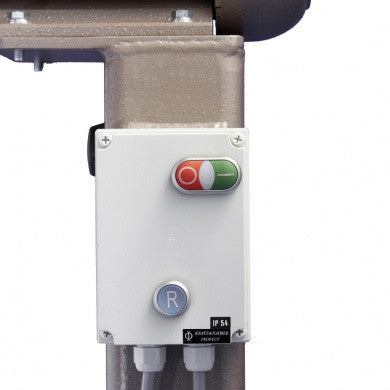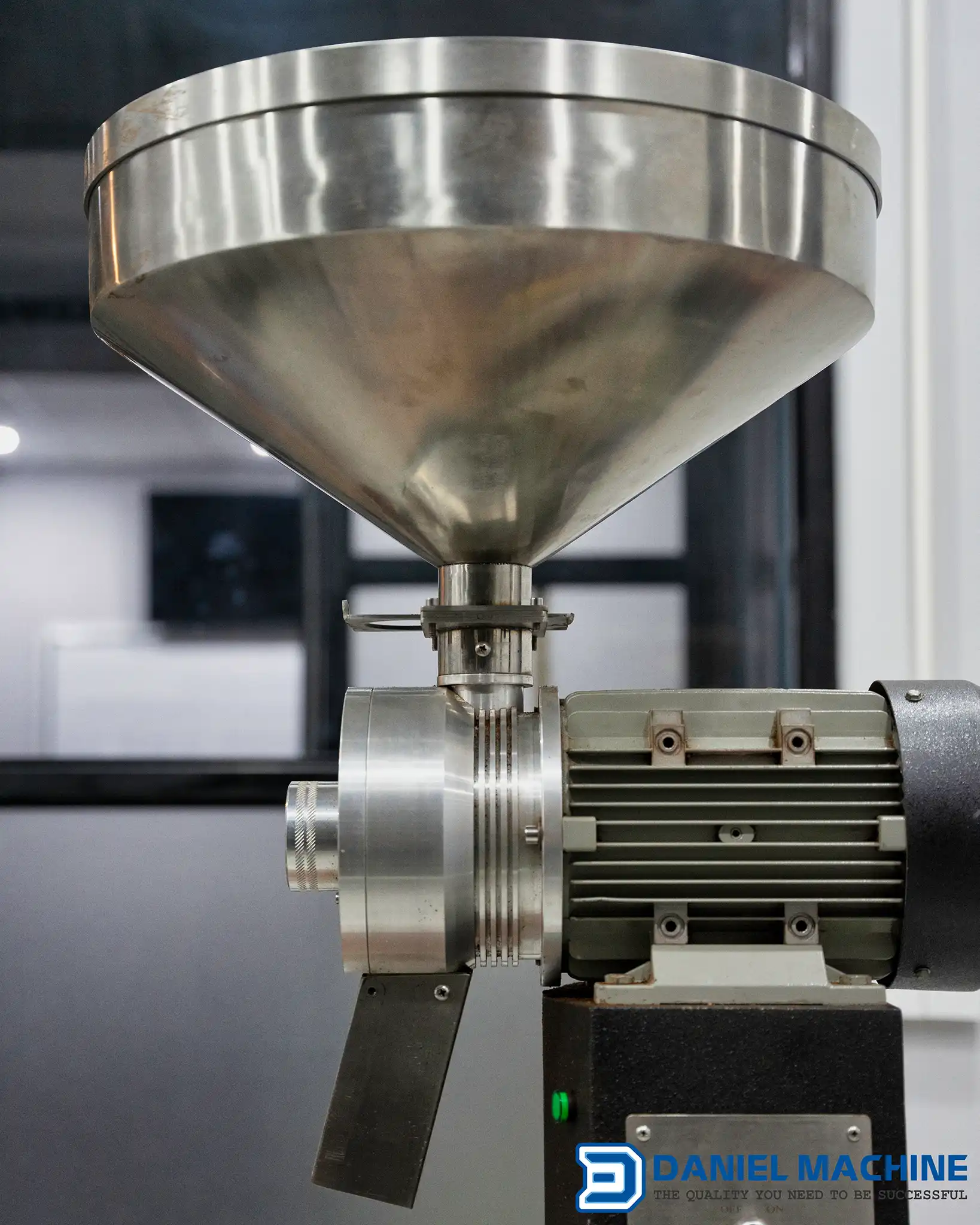Maximize Efficiency with an Industrial Coffee Grinder in Your Business
Maximize Efficiency with an Industrial Coffee Grinder in Your Business
Blog Article
Just How to Select the Perfect Industrial Coffee Mill for Your Business
Selecting the perfect commercial coffee grinder for your business is a multifaceted decision that requires mindful factor to consider of a number of important variables. Additionally, understanding the different kinds of mills available can dramatically affect your functional performance.
Assess Your Grinding Demands
When selecting an industrial coffee grinder, one must first analyze their grinding needs to make certain optimum performance and uniformity. This initial evaluation involves recognizing the quantity of coffee to be refined daily, in addition to the desired work dimension for different developing approaches. A high-capacity grinder may be necessary for businesses offering huge quantities of coffee, while smaller procedures could locate an extra portable design enough.
Moreover, it is necessary to think about the kinds of coffee beans being used, as different beans may require details grinding methods to attain the very best flavor profile. Oily beans could necessitate a mill made to manage such characteristics without clumping or overheating.
An additional crucial factor is the called for work uniformity. Specialty coffee companies commonly require exact work sizes to improve removal and taste, making it vital to select a grinder that can deliver consistent results. Finally, reviewing the offered space and electric requirements will assist in selecting a mill that fits perfectly into your operational workflow. By completely assessing these aspects, services can make informed choices that straighten with their coffee grinding needs, inevitably causing an exceptional product and satisfied clients.
Understand Mill Kind
Understanding the numerous types of industrial coffee grinders is critical for making a notified choice that satisfies certain operational demands. There are mainly two classifications of mills: blade grinders and burr mills.
Blade grinders make use of rotating blades to chop the coffee beans, resulting in an inconsistent grind dimension - Industrial Coffee Grinder. While they may be more economical, they are commonly not ideal for commercial applications where accuracy is necessary
On the various other hand, burr mills provide an extra consistent work by squashing the beans between two surface areas. They can be additional classified right into flat burr and conelike burr mills. Flat burr grinders offer a constant work dimension and are usually preferred for espresso prep work, while conelike burr grinders are flexible and can take care of a series of mixture approaches, from espresso to French press.
When selecting a grinder, consider the certain requirements of your organization, including desired work consistency, production quantity, and the sorts of coffee beverages you intend to offer - Industrial Coffee Grinder. Each grinder kind has its constraints and benefits, so recognizing these nuances enables informed decision-making that aligns with operational goals
Evaluate Work Dimension Uniformity
Achieving work dimension uniformity is crucial for creating high-quality coffee, as variants in bit size can dramatically affect removal and taste. When picking a commercial coffee grinder, it is crucial to review how well the maker maintains harmony in grind size throughout various sets. Irregular work sizes can lead to irregular extraction, resulting in a read more cup that may taste excessively bitter or weak.
To assess work size uniformity, take into consideration mills with features such as adjustable grind setups and high-grade burrs. Burr mills, specifically, stand out in generating consistent fragment sizes compared to blade mills. The material and form of the burrs play an essential role, with stainless-steel and ceramic choices offering toughness and accuracy.

Take Into Consideration Production Capability
In the fast-paced world of coffee production, taking into consideration production capability is critical for businesses intending to satisfy need without compromising high quality. The production capability of a commercial coffee grinder directly influences a company's capability to meet orders efficiently, handle stock, and respond to fluctuating market patterns.
When assessing production capability, it is important to evaluate the mill's More Bonuses result price, typically determined in extra pounds per hour. This measurement ought to straighten with your company's forecasted sales quantity and development targets. A café with a high turn over may need a mill that can refine several hundred extra pounds daily, while a smaller sized operation might be adequate with a reduced capacity model.
Furthermore, consider the kind of coffee being refined. Various beans and blends might impact grinding speed and effectiveness, necessitating a grinder efficient in handling varied production demands. It's likewise worth factoring in the grinder's capability to preserve constant high quality under high output conditions, as any kind of changes can affect the end product.
Ultimately, picking a grinder that matches your company's manufacturing capacity will ensure you stay receptive and affordable to consumer assumptions.

Budget Plan and Upkeep Variables
When evaluating the appropriate commercial coffee mill, maintenance and spending plan aspects play a significant role in the overall decision-making procedure. A first investment in a premium grinder can generate lasting benefits, but it's vital to develop a clear budget that straightens with your service's operational needs. Take into consideration both the purchase price and potential functional costs, such as energy intake and replacement components.
Maintenance is one more critical element that can impact your budget plan. Industrial coffee mills need normal upkeep to guarantee ideal performance and longevity. Review the producer's referrals for upkeep, including cleaning routines and components replacement, as these will affect lasting operational expenses. Additionally, take into consideration the YOURURL.com availability of service and assistance, as trusted assistance can alleviate downtime and repair work costs.

Spending in a mill that is long lasting yet very easy to preserve can save money over time. While lower-priced alternatives may be tempting, they might incur higher upkeep costs and minimized efficiency. Ultimately, balancing first expenses with lasting maintenance and functional performance will certainly direct you to the most effective choice for your service's coffee grinding demands.
Final Thought
Selecting the suitable commercial coffee mill demands a comprehensive analysis of grinding requirements, mill kinds, grind dimension consistency, manufacturing ability, and budgetary factors to consider. An appropriate grinder not only enhances the quality of the coffee produced however also contributes to the overall success and success of the venture.
Specialty coffee businesses commonly demand exact work dimensions to boost removal and flavor, making it crucial to select a grinder that can provide uniform results. Flat burr mills offer a regular work size and are usually preferred for espresso preparation, while conelike burr mills are versatile and can deal with a variety of mixture techniques, from coffee to French press.
When choosing an industrial coffee mill, it is vital to examine exactly how well the machine keeps uniformity in grind dimension throughout various sets. Burr grinders, in particular, stand out in creating consistent fragment sizes compared to blade mills.Selecting the suitable commercial coffee mill requires an extensive analysis of grinding requirements, mill kinds, grind dimension consistency, production capability, and monetary factors to consider.
Report this page